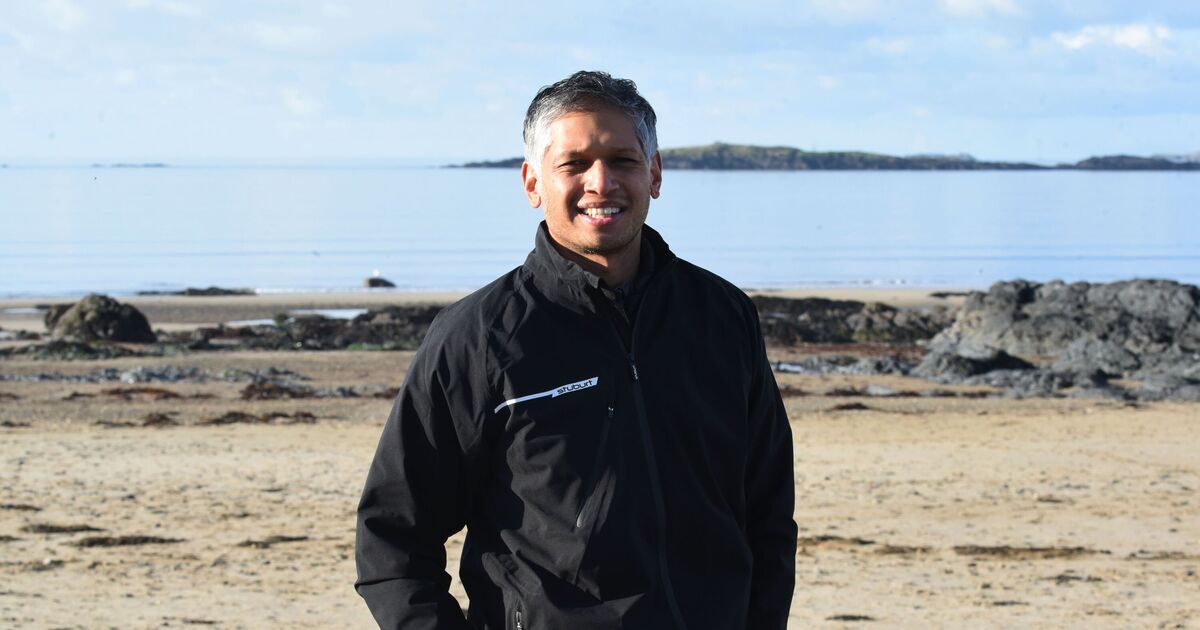When they were built, the townhouses perched a mere 50 yards from the sands of Rhosneigr’s beach couldn’t find buyers. It mattered little that they provided the perfect spot to watch the sunset across the sea. Three decades ago, the small village on Anglesey’s west coast was simply not enough of a draw.
Back in 1996, the Welsh island did feel more remote. There was no internet, getting there by car for most took many hours, and although families came for holidays, it was a modest kind of place where the average cost of a home was £50,836.
Fast-forward to the present day, however, and Rhosneigr has gone from an under-the-radar vacation spot to a highly desirable destination for the super-wealthy.
Analysis by the Express’s data unit shows that the increase in property values in this little Welsh village has only been beaten by London over the past three decades. As of September 2024, the average house price is now an incredible £679,000.
This year when one of the townhouses near the beach came on the market local estate agent Rhosneigr Property reported overwhelming interest and made a swift sale.
It was far from an isolated case.
Demand for homes in the village is now so strong that listings for small cottages with sea views last only a matter of days.
From her spot behind the till at the blue-painted Funsport surf shop, Rhosneigr local Nadine Moore does wonder what exactly it is about the place that has generated such enthusiasm.
“I mean, it’s just like a small high street and some shops,” she tells the Express. “There’s not much here.”
Moore, like so many of the residents of the village the Express spoke to, qualifies that with “apart from it being really beautiful”.
The 30-year-old water sports enthusiast was also not alone in feeling the magnetic pull of Rhosneigr. In her case, she’d travelled all around the world but only felt compelled to stay in this small seaside community. “It’s got a vibe to it,” she says. “Even travelling to Australia and New Zealand [they weren’t like Rhosneigr].”
Living in the village for five years, Moore has found it’s become a place where you bump into influential people on the beach.
“A lot of people come over and [their place in Rhosneigr] is not their only holiday home, they have a couple,” Moore says.
“You’ll meet like the owner of [a high street restaurant] or a housing corporation, every second person is usually quite a well-known figure.”
She compares the community’s makeup to that of the Netflix show Outer Banks, in which wealthy seasonal residents blend with working-class locals.
Moore adds: “It’s like a surf town, so you get a lot of individuals who come here for the kitesurfing and windsurfing. They are [part of a] core that has either grown up here or moved for the water sport scene.
“At the same time [the water] brings a lot of wealth over from like Chester or Manchester, rich individuals who come over here because they get to launch a powerboat and use the water quite luxuriously. They have beautiful homes that overlook a beach destination.”
The problem with having a place that attracts super-rich people who own multiple secondary properties is that they often lie empty.
This, unsurprisingly, makes some of the full-time residents unhappy.
“The number of second homes is always an issue because the village in the winter is very quiet and some of the small businesses have closed down,” says local councillor Derek Browne.
“Generally people are not happy about it because it’s pricing local and young people out of the market.”
In 2023, the Welsh Language Society blamed the abundance of second homes for a huge decline in the number of Welsh speakers in the village.
Just 27% of Rhosneigr’s population spoke the native dialect – almost half the number in neighbouring towns and one of the worst figures in Anglesey.
“Rhoseignr [is] the epicentre of the second homes crisis, a symptom of the wider failure of the free market on housing to fulfil its purpose in providing adequate, affordable homes for local people,” the Society told North Wales Online.
Since those complaints were raised, the second-home situation has been impacted by new powers handed out by the Welsh government to local authorities, which let Anglesey raise council tax rates on second homes by as much as 150%.
Councillor Browne explains that although the legislation had seen homes being sold off, the buyers were not local people.
This is partly because they remain so expensive, but also because the explosion of home-working in the wake of the Covid pandemic has seen people from all over Britain make places like Rhosneigr their primary residence.
It’s why recent clients of local estate agent Rhosneigr Property include a family who work in London and, thanks to flexible and remote working arrangements, can now base themselves in Anglesey. The business’s owner, Daniel Fernandes, understands the lure to relocate on a personal level.
Fernandes, whose Cheshire-born wife holidayed in the village during her childhood, was enamoured with the lifestyle in Rhosneigr from the first moment he visited his in-laws who moved there to retire.
“The weather was stunning and when I saw the bay with the waves rolling in I was just in awe,” he adds.
“Over the weekend I went to the bars and felt the buzz. We went that evening to a family barbecue and it was just like stepping into a different world.”
In terms of rising house prices, a different world indeed to even some of Britain’s most sought-after postcodes.












